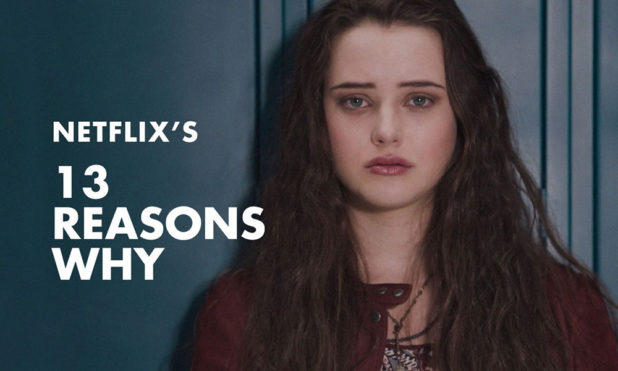Pomidor Quixote
Daily Stormer
April 30, 2019
This is yet another indication of Jewish social engineering working as intended.
AP:
Suicides among U.S. kids aged 10 to 17 jumped to a 19-year high in the month following the release of a popular TV series that depicted a girl ending her life, researchers said.
The study published Monday can’t prove that the Netflix show “13 Reasons Why” was the cause, but there were 195 more youth suicides than would have been expected in the nine months following the show’s March 2017 release, given historical and seasonal suicide trends, the study estimated.
During April 2017 alone, 190 U.S. tweens and teens took their own lives. Their April 2017 suicide rate was .57 per 100,000 people, nearly 30 percent higher than in the preceding five years included in the study. An additional analysis found that the April rate was higher than in the previous 19 years, said lead author Jeff Bridge, a suicide researcher at Nationwide Children’s Hospital in Columbus, Ohio.
“The creators of the series intentionally portrayed the suicide of the main character. It was a very graphic depiction of the suicide death,” which can trigger suicidal behavior, Bridge said.
For decades, Jews have used TV to program into the goyim’s mind corrupted behavioral patterns that override natural ones.
They’ve made white women want to fuck niggers, they’ve inverted the male-female dynamic in heterosexual relationships, they’ve ridiculed parenthood and the father figure and displayed kids as smart witty geniuses that know more than their obsolete parents, they’ve successfully perverted the concept of love and turned it into a hedonistic activity where the purpose is experiencing tingly sensations instead of bringing life to the world, they’ve convinced women to kill their babies and to destroy the lives of their husbands.
Considering this, is it that implausible that a show about suicide whose target audience is young teens may be intended to incite young teens to kill themselves?
Why else would they make an entire show with multiple seasons about suicide?
The researchers analyzed data from the federal Centers for Disease Control and Prevention on deaths in Americans aged 10 to 64 from January 2013 through December 2017. Their results were published in the Journal of the American Academy of Child and Adolescent Psychiatry. The researchers found no change in suicide rates in those 18 and older after the show was released.
The results are plausible and add to evidence that compelling media depictions of suicide can negatively influence young people, said sociologist Anna Mueller of the University of Chicago, who was not involved in the research.
It could be that young developing brains exposed to Jewish engineering tricks are easier to condition than older ones, yes, but the show itself was marketed at young teens. The target audience of the show suffered the intended consequences.
The study didn’t look into whether those who died by suicide watched the show or not, but the fact that the increase in suicides happened among the target demographics of the show tells you a lot.
Lisa Horowitz, a co-author and researcher at the National Institute of Mental Health, noted that suicide is the second leading cause of death for U.S. teens and called it “a major public health crisis.” Her agency helped pay for the study.
Teen suicide rates have increased in recent years and other research has suggested that bullying and heavy use of social media may contribute to the risk.
Yes. There is definitely a suicide problem among young white kids and teens. I previously wrote about how Instagram may be inducing young white girls to suicide, and this study correlating Netflix’s suicide show to actual teen suicides provides another piece of the puzzle.
Our kids and young teens are killing themselves for obscure reasons. What does that tell you about our society?
A Netflix spokesman noted that the new study conflicts with University of Pennsylvania research published last week that found fewer suicidal thoughts among young adults who watched the entire second season than among non-viewers.
Yes, goy.
It’s all just a giant coincidence.




